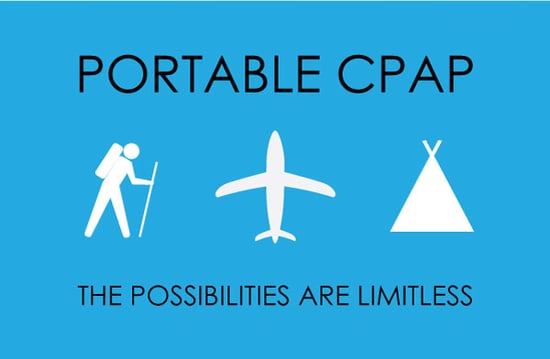What is a Travel CPAP Device?

CPAP therapy is the gold standard treatment for obstructive sleep apnea. Without it, millions of people around the world suffer from the negative health effects of this sleeping disorder. This is easy when one is at home, but while traveling, CPAPs can be cumbersome and difficult to pack. However, forgoing it for a few days also increases one's risk of a complication related to CPAP therapy. One option, however, is a travel CPAP.
Travel CPAPs are TSA-friendly, can be FAA approved for in-flight use, are easy to disassemble and reassemble, and are portable so they can fit in a carry on bag. One of the reasons they are more travel-friendly is that they tend to use smaller tubing, have fewer parts, and are battery powered so they don't require power cables.
Travel CPAP machines are made specifically for traveling. They are a bit more expensive than regular CPAP machines and are not made to “replace” your regular CPAP.
When Would You Use a Portable CPAP?
Common cases for using a travel CPAP are:
- While camping
- On a long plane flight
- On vacation
- On work travel
In short, they can be used anytime you are sleeping away from home.
Is a Portable CPAP Device Right For You?
Whether or not investing in a portable CPAP device is right for you mainly depends on how often you travel, where you will be using it, and your budget.
Portable CPAP devices tend to cost around $900 and up. The more features that you add on, the more expensive it will be. Some of these additions include ensuring that it is FAA certified for in-flight use, touch screen, smaller, has altitude capabilities, and Bluetooth connection to your phone for better tracking.
Conclusion
Untreated sleep apnea can have severe consequences. Traveling can disrupt many components of your sleep, including your use of CPAP. If you travel a lot, then a portable CPAP might be the best option for you.
If you or someone you know struggles with sleep, please click the blue button below to take a free online sleep test and talk with one of our sleep health professionals about your options.


